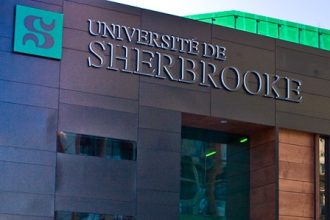Sen. Bernie Sanders accused billionaires of a “coordinated effort” to dismantle the public system.
In a recent report, Sanders claimed that ultra-rich individuals are increasingly trying to undermine and privatize public schools. Last week, Senator Sanders led a Senate Committee on Health, Education, Labor, and Pension hearing titled The Immediate and Long-Term Challenges Facing School Teachers: Low Pay, Teacher Shortages, and Underfunded Public Schools.
According to Sanders, an independent from Vermont, “Over the past decade, there has been a coordinated effort on the part of right-wing billionaires to undermine, dismantle, and sabotage our nation’s public schools and privatize our education system.” He added, “That is completely unacceptable. We can no longer allow billionaires and multinational corporations to gain significant tax breaks and subsidies while American children are forced to attend an understaffed, under-resourced and underfunded public school.”
According to the report, the wealthy are coordinating the attack in many ways, including by implementing private school vouchers and advocating for education segregation. The report stated that these policies mostly favor wealthy families and also provide tax cuts for rich and huge enterprises.
After adjusting for inflation, the report also found that state funding for public elementary and secondary schools has increased by only 1% each year in the past 10 years. Meanwhile, state spending on tax rebates and private school subsidies increased by 408%, totaling $7 billion.
Recently, 91% of US students attended public schools funded by local, state, and federal governments. Republican-led states have actively pushed private school voucher schemes to promote parental and school choice, but this can result in removing funds that otherwise benefit public schools.
“Under the false promise of ‘school choice’ Republican-led state legislatures are adopting or expanding K–12 private school vouchers that drain hundreds of millions of dollars from their state budgets and public education system to fund unaccountable private schools,” Sander added in his report.
Arizona, for example, approved the first universal eligibility private school voucher program in the past two years. According to the estimates, it costs between $65 million and $994 million per year, with the public school system receiving less than half of the new K–12 education spending.
According to the report, Arizona could utilize the funds to hire 15730 more public teachers and pay them at least $60,000 annually.
Another issue to consider is who benefits from private school vouchers. Early data indicates that in places where these systems have been established, 65% to 95% of those who can participate in voucher programs never attended public schools. According to the reports, those who can already afford a private school education stand the chance to benefit the most.
Kevin Thompson, a finance expert and the founder/CEO of the Texas-based 9i Capital Group, claims that many of Sanders’s concerns are based on reality, particularly the use of taxpayer monies to fund private schools.
“He has some valid points to this because taxpayers should not be funding private education for individuals, and monies are traditionally used for public school funding,” he added. “The vouchers would benefit families already sending their children to private schools, as the data has shown.”
But who is leading the push for these programs? According to Sander’s analysis, he added that a “handful of conservative billionaires,” including the Koch Foundation, the DeVos Family Foundation, and the Bradley Foundation, are some of the key actors behind the lobbying campaigns and the state laws.
“Make no mistake, Republicans’ efforts to vilify educators, ban books and censor what is taught in the classroom are blatant attempts to erode trust in the nation’s public schools and justify diverting hundreds of millions of taxpayer dollars away from public education,” Sander told CNN.
According to Thompson, the wealthy have the most influence over political decisions. Hence, lawmakers often favor the rich.
Previously, Sanders introduced a bill to assist public schools in navigating the numerous problems they face. His proposed Pay Teachers Act would guarantee that teachers get paid at least $60,000 a year to start and triple Title I funds for low-income school districts. He also introduced a bill to make public colleges and universities tuition-free and to forgive all outstanding student debts.
According to Alex Beene, a financial literacy instructor at the University of Tennessee at Martin, Sander’s views reflect a growing public concern about education.
“I think for many Americans, this isn’t about a disdain for private schools but rather a very real fear their students won’t have access to the same classes and consequently the same professional futures as their private school counterparts,” Beene added.















